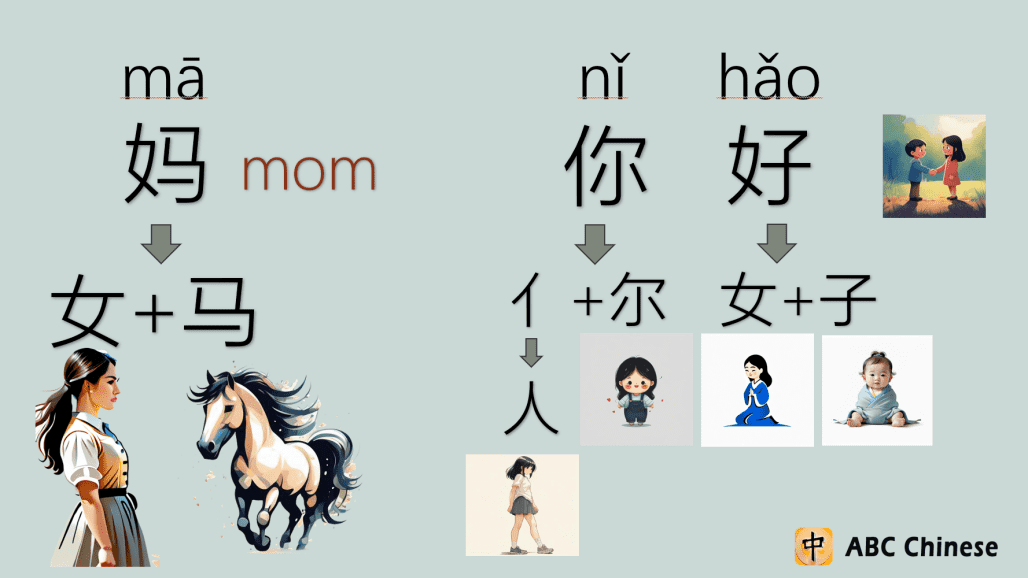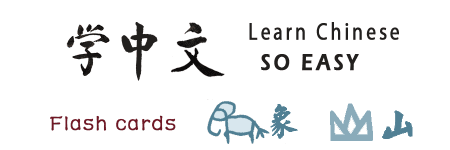中国人常用的句子

I. 外国人来华的常用短语(普通话)
对于初来中国的外国人,掌握一些基础短语能让他们的生活更加便利。以下是常见的基础问候语、求助语等中文短语、对应的英语翻译以及例句。
(1) 问候类
1. 你好 (nǐ hǎo) - Hello
Example: 你好,我是来自美国的汤姆。 (Hello, I'm Tom from the United States.)
2. 早上好 (zǎo shàng hǎo) - Good morning
Example: 早上好,今天天气真不错。 (Good morning. It's a really nice day today.)
3. 下午好 (xià wǔ hǎo) - Good afternoon
Example: 下午好,您知道附近的银行在哪里吗? (Good afternoon. Do you know where the nearby bank is?)
4. 晚上好 (wǎn shàng hǎo) - Good evening
Example: 晚上好,我们一起去吃晚餐吧。 (Good evening. Let's go to have dinner together.)
5. 再见 (zài jiàn) - Goodbye
Example: 再见,希望很快能再见到你。 (Goodbye. Hope to see you again soon.)
(2) 感谢与道歉类
1. 谢谢 (xiè xie) - Thank you
Example: 谢谢,你帮了我一个大忙。 (Thank you. You've helped me a great deal.)
2. 不客气 (bù kè qì) - You're welcome
Example: A: 谢谢你的帮助。 B: 不客气。 (A: Thank you for your help. B: You're welcome.)
3. 对不起 (duì bu qǐ) - Sorry
Example: 对不起,我不小心撞到你了。 (Sorry, I bumped into you accidentally.)
4. 没关系 (méi guān xi) - It doesn't matter
Example: A: 我迟到了,对不起。 B: 没关系,我们开始吧。 (A: I'm late. Sorry. B: It doesn't matter. Let's start.)
(3) 沟通理解类
1. 我不明白 (wǒ bù míng bái) - I don't understand
Example: 你说的太快了,我不明白。 (You're speaking too fast. I don't understand.)
2. 请说慢一点 (qǐng shuō màn yī diǎn) - Please speak a little slower
Example: 我跟不上你的速度,请说慢一点。 (I can't keep up with you. Please speak a little slower.)
(4) 购物类
1. 这个多少钱 (zhè gè duō shǎo qián) - How much is this?
Example: 这个纪念品多少钱? (How much is this souvenir?)
2. 太贵了 (tài guì le) - It's too expensive
Example: 这个包包太贵了,有便宜一点的吗? (This bag is too expensive. Do you if you have a cheaper one?)
3. 便宜一点 (pián yi yī diǎn) - A little cheaper
Example: 我觉得这个价格太高了,可以便宜一点吗? (I think the price is too high. Can it be a little cheaper?)
4. 我要这个 (wǒ yào zhè gè) - I'll take this one
Example: 这个杯子很漂亮,我要这个。 (This cup is very beautiful. I'll take this one.)
(5) 问路与求助类
1. 在哪里 (zài nǎ lǐ) - Where is...?
Example: 地铁站在哪里? (Where is the subway station?)
2. 我迷路了 (wǒ mí lù le) - I'm lost
Example: 我迷路了,你能帮我吗? (I'm lost. Can you help me?)
3. 救命 (jiù mìng) - Help
Example: 救命!有人落水了。 (Help! Someone has fallen into the water.)
4. 洗手间在哪里 (xǐ shǒu jiān zài nǎ lǐ) - Where is the washroom?
Example: 不好意思,洗手间在哪里? (Excuse me. Where is the washroom?)
5. 我需要帮助 (wǒ xū yào bāng zhù) - I need help
Example: 我遇到了一些麻烦,我需要帮助。 (I've got some trouble. I need help.)
(6) 饮食类
1. 我饿了 (wǒ è le) - I'm hungry
Example: 走了这么久,我饿了。 (After walking for so long, I'm hungry.)
2. 我渴了 (wǒ kě le) - I'm thirsty
Example: 天气太热了,我渴了。 (It's too hot. I'm thirsty.)
3. 有菜单吗 (yǒu cài dān ma) - Do you have a menu?
Example: 服务员,有菜单吗? (Waiter, do you have a menu?)
4. 我吃素 (wǒ chī sù) - I'm a vegetarian
Example: 我吃素,请给我推荐一些素菜。 (I'm a vegetarian. Please recommend some vegetarian dishes for me.)
5. 好吃 (hǎo chī) - It's delicious
Example: 这个中国菜好吃。 (This Chinese dish is delicious.)
6. 不好吃 (bù hǎo chī) - It's not delicious
Example: 这个味道很奇怪,不好吃。 (This taste is very strange. It's not delicious.)
(7) 表达喜好类
1. 我喜欢 (wǒ xǐ huān) - I like...
Example: 我喜欢中国的传统文化。 (I like Chinese traditional culture.)
2. 我不喜欢 (wǒ bù xǐ huān) - I don't like...
Example: 我不喜欢吃辣的食物。 (I don't like spicy food.)
(8) 询问事物类
1. 这是什么 (zhè shì shén me) - What's this?
Example: 这是什么东西?我从来没见过。 (What's this? I've never seen it before.)
2. 那是什么 (nà shì shén me) - What's that?
Example: 看,那是什么?在天空中飞着呢。 (Look. What's that? It's flying in the sky.)
(9)自我介绍与询问类
1. 我的名字是 (wǒ de míng zì shì) - My name is...
Example: 我的名字是大卫,很高兴认识你。 (My name is David. Nice to meet you.)
2. 你叫什么名字 (nǐ jiào shén me míng zì) - What's your name?
Example: 你好,你叫什么名字? (Hello. What's your name?)
3. 我来自 (wǒ lái zì) - I'm from...
Example: 我来自英国。 (I'm from the UK.)
4. 你来自哪里 (nǐ lái zì nǎ lǐ) - Where are you from?
Example: 你来自哪里?你的口音很有趣。 (Where are you from? Your 口音 is very interesting.)
5. 很高兴认识你 (hěn gāo xìng rèn shí nǐ) - Nice to meet you
Example: 很高兴认识你,希望我们能成为朋友。 (Nice to meet you. I hope we can be friends.)
(10) 身份与旅游相关类
1. 我是游客 (wǒ shì yóu kè) - I'm a tourist
Example: 我是游客,对这里不太熟悉。 (I'm a tourist. I'm not very familiar with this place.)
2. 有什么好玩的地方 (yǒu shén me hǎo wán de dì fang) - Are there any interesting places?
Example: 这里有什么好玩的地方吗? (Are there any interesting places here?)
3. 我可以拍照吗 (wǒ kě yǐ pāi zhào ma) - Can I take a picture?
Example: 这座建筑很漂亮,我可以拍照吗? (This building is very beautiful. Can I take a picture?)
(11) 身体状态与休息类
1. 我累了 (wǒ lèi le) - I'm tired
Example: 走了一整天,我累了。 (After walking all day, I'm tired.)
2. 我想休息一下 (wǒ xiǎng xiū xi yī xià) - I want to take a rest
Example: 我现在感觉不太舒服,我想休息一下。 (I don't feel very well now. I want to take a rest.)
(12) 住宿相关类
1. 附近有酒店吗 (fù jìn yǒu jiǔ diàn ma) - Is there a hotel near here?
Example: 我刚到这个城市,附近有酒店吗? (I just arrived in this city. Is there a hotel near here?)
(13) 语言与许可类
1. 你会说英语吗 (nǐ huì shuō yīng yǔ ma) - Do you speak English?
Example: 你好,你会说英语吗?我有一些问题想咨询。 (Hello. Do you speak English? I have some questions to ask.)
2. 请 (qǐng) - Please
Example: 请给我一杯水。 (Please give 我 a glass of water.)
3. 可以 (kě yǐ) - OK / Can
Example: 我可以坐在这里吗? (Can I sit here?)
4. 不可以 (bù kě yǐ) - No / Can't
Example: 这里不可以吸烟。 (Smoking is not allowed here.)
(14) 时间相关类
1. 等一下 (děng yī xià) - Wait a moment
Example: 等一下,我还没准备好呢。 (Wait a moment. I'm not ready yet.)
2. 快点 (kuài diǎn) - Hurry up
Example: 快点,我们要赶不上火车了。 (Hurry up. We're going to miss the train.)
3. 今天几号 (jīn tiān jǐ hào) - What's the date today?
Example: 你好,今天几号了? (Hello. What's the date today?)
4. 现在几点 (xiàn zài jǐ diǎn) - What's the time now?
Example: 打扰一下,现在几点了? (Excuse me. What's the time now?)
(15) 预约相关类
1. 我有预约 (wǒ yǒu yù yuē) - I have a reservation
Example: 我有预约,我的名字是约翰。 (I have a reservation. My name is John.)
II. 特色中文短语的英语对照
(1) 谚语俗语类
中国的谚语俗语蕴含着深刻的智慧,了解它们的英文翻译能帮助外国人更好地理解中国文化。例如:“有志者事竟成”(Where there's a will, there's a way.)、“患难见真情”(A friend in need is a friend indeed.)等。这些谚语俗语以简洁而生动的方式传达了中国人的价值观和生活哲学。
(2) 能力与习惯表达类
中文中有一些独特的表达个人能力和习惯的短语。比如 “海量”(a large capacity for liquor),常用于形容一个人酒量很大;“有头脑”(intelligent and resourceful)则是指一个人聪明且有办法。这些短语丰富了语言的表达方式,展现了中文的精妙之处。
III. 特定场景下的常用短语
(1) 旅游场景
外国游客在中国旅游时,会用到许多特定的中文短语。在景点游玩时,可能会问 “这里有什么特色景点?(What are the special scenic spots here?)”“怎么去山顶?(How can I get to the top of the mountain?)” 等。在乘坐交通工具时,会说 “去机场多少钱?(How much is it to the airport?)”“下一站是哪里?(What's the next stop?)” 等。
(2) 工作场景
对于在中国工作的外国人,工作相关的中文短语必不可少。比如 “我有个会议(wǒ yǒu gè huì yì) - I have a meeting.”“截止日期是什么时候?(What's the deadline?)”“我完成任务了(wǒ wán chéng rèn wu le) - I have completed the task.” 这些短语有助于他们在工作中与同事和上级进行有效的沟通。
(3) 日常生活场景
在日常生活中,如购物、就餐、社交等方面也有相应的常用短语。购物时除了前面提到的价格询问短语,还可能会说 “有折扣吗?(Is there a discount?)”;就餐时会有 “我想点外卖(wǒ xiǎng diǎn wài mài) - I want to order takeout.”;社交场合可能会说 “你有空吗?(Are you free?)” 等。这些短语能让外国人更好地融入中国的日常生活。
IV. 如何记住这些短语
艾宾浩斯遗忘曲线
学习语言的过程中,遗忘是不可避免的难题。而 ABC Chinese 这个 APP 则巧妙地运用了艾宾浩斯遗忘曲线的规律。当外国人在学习中文短语时,这些学过的内容会在后续的学习过程中定时出现。通过这种有规律的复习方式,能够大大增强记忆效果,真正让外国人记住中文。
据研究表明,按照艾宾浩斯遗忘曲线进行复习,能够将记忆的保持率提高到 80%以上。这意味着,外国人使用 ABC Chinese APP 学习中文短语,有很大的机会将这些短语牢牢记住,从而在实际生活中更加自如地运用。
多说多练
语言的掌握离不开实际的运用,对于中文短语的记忆也是如此。外国人可以找中国人练习,在真实的交流场景中不断巩固所学的短语。同时,ABC Chinese 里的 AI 中文老师也为他们提供了一个绝佳的练习平台。在模拟的多个生活场景里,外国人可以与 AI 进行谈话练习。这种快速的语言环境能够让他们迅速掌握中文普通话的短语和语法。
当外国人不知道怎么和 AI 用中文沟通时,可以点击提示按钮,AI 会告诉他们该说什么。就像在中国生活一样,这种方式能让他们快速掌握中文技巧。目前,ABC Chinese APP 支持英语、日语、韩语、西班牙语、印尼语、法语、德语、意大利语、马来语等多种语言。即使外国人不会中文,他们也可以用自己国家的语言和 AI 对话并得到中文回复。
例如,一位来自法国的游客,他可以使用法语与 AI 交流,在交流的过程中学习中文短语。通过不断地练习,他能够更加熟练地掌握“请问,这是去……的路吗?”“我迷路了。”等旅游相关的短语,让自己的中国之旅更加顺利。
总之,通过利用艾宾浩斯遗忘曲线进行规律复习,以及多说多练的方式,外国人能够更好地记住这些常用中文短语,为他们在中国的生活、工作和文化交流打下坚实的基础。



